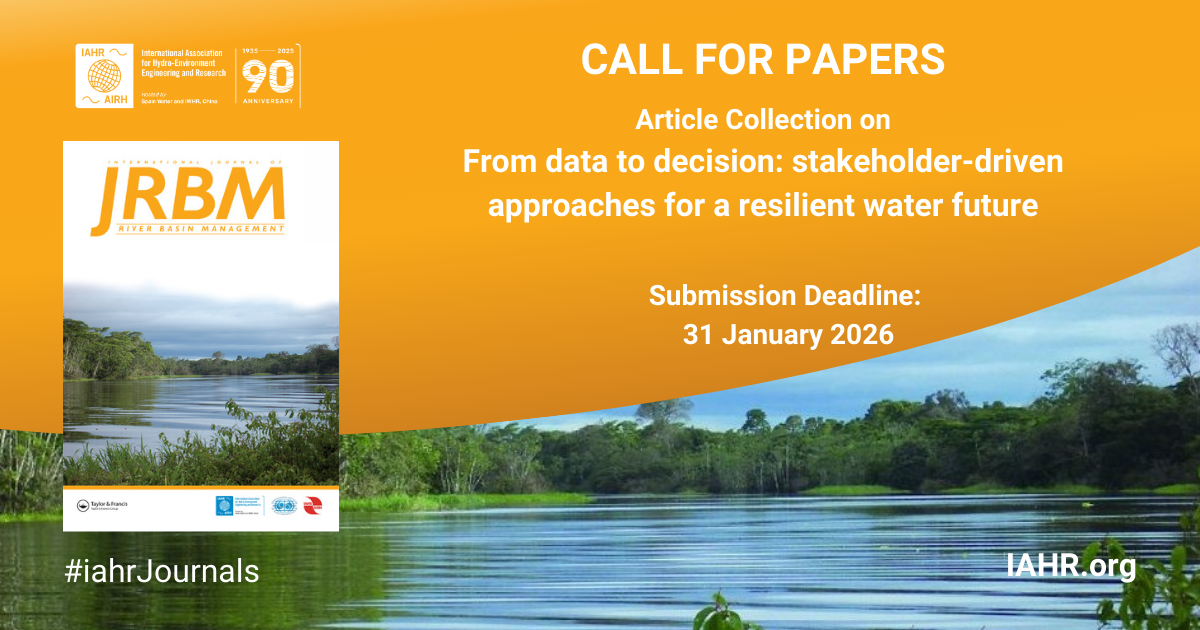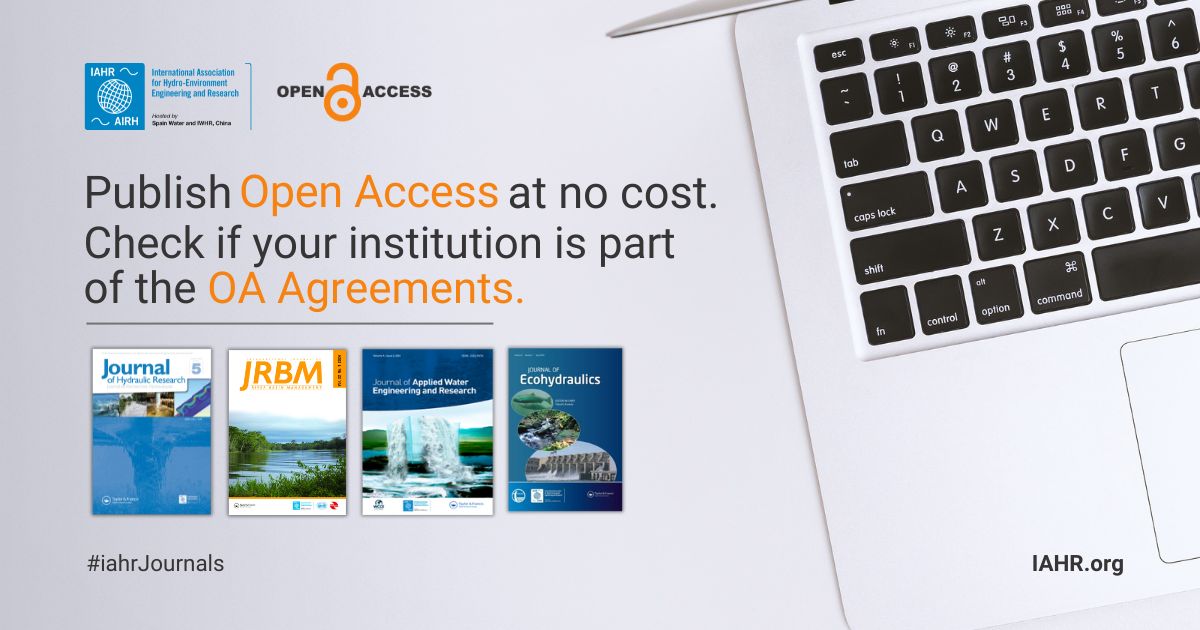JRBM Article Collection on From data to decision: stakeholder-driven approaches for a resilient water future
Demands for more integrated, responsive, and inclusive water governance are gaining importance in the face of accelerating climate variability, population growth, and competition over finite water resources worldwide. Traditional top-down water management approaches are increasingly insufficient in addressing the complex, multi-scalar challenges that define contemporary water systems. This special issue proposes to foreground the critical importance of stakeholder-driven methodologies that translate data into actionable knowledge for enhanced water resilience at the river basin scale.
Recent advances in data collection and data analysis tools—ranging from remote sensing and in-situ monitoring to citizen science and digital platforms—have expanded our ability to characterize hydrological systems in unprecedented detail. However, the value of this information remains limited unless effectively used in decision-making. The emerging field of “data-to-decision” frameworks highlights the need for translational mechanisms that link scientific knowledge with stakeholder priorities, values, and institutional capacities. Bridging this gap requires co-produced knowledge, modelling approaches that take stakeholders into consideration directly, and iterative engagement processes that promote mutual learning and trust among researchers, policymakers, water managers, and local communities.
This special issue seeks to explore how stakeholder-driven approaches can be systematically integrated into decision-making processes to build adaptive capacity and social-ecological resilience. Contributions consider different spatial and temporal scales to critically assess methodological innovations, policy instruments, decision-support tools, and institutional arrangements that facilitate the translation of complex water data into decisions that are both scientifically robust and socially legitimate. Case studies from diverse hydrological, geographic, and socio-political contexts are especially encouraged, as these provide critical insights into the operationalization of stakeholder-engaged data to decision frameworks.
Given the increasing emphasis on transdisciplinary research, the imperative to democratize water governance, and the growing availability of high-resolution data, the moment is ripe for a concerted scholarly examination of how data can be transformed into decisions through inclusive and stakeholder-responsive processes across different spatial and temporal scales. In this context, a fundamental goal of this special issue is to offer an interdisciplinary platform for advancing theory, practice, and policy around participatory water management in the face of uncertainty.
Topics
This special issue welcomes contributions from a wide variety of perspectives, including:
Data-driven and process-driven models in river basin management, potentially including interactions between both approaches.
Methodologies for engaging stakeholders in the co-design of basin-scale water monitoring systems, models, and management strategies.
Development and application of tools (e.g., dashboards, scenario planning) that support stakeholder involvement in water management.
Case studies on innovations that enable collaborative water governance and resilient management.
Exploring hybrid approaches that bring together scientific and traditional knowledge systems in water decision-making.
Methods for conveying probabilistic and scenario-based water data to policymakers and community stakeholders.
Definition and application of indicators for resilient water management.
Assessment of future water availability and risks across different spatial and temporal scales in the context of climate variability and evolving conditions.
Development of safe operating space frameworks for water management.
Guest Editors
Pedro Martínez-Santos (Editor), Universidad Complutense de Madrid, Spain, pemartin@ucm.es
Albretch Weerts, Deltares, The Netherlands, Albrecht.Weerts@deltares.nl
Harm Duel, Deltares, The Netherlands, Harm.Duel@deltares.nl
Helmut Habersack, Institute of Hydraulic Engineering and River Research, Austria, helmut.habersack@boku.ac.at
Michiel Blind, Deltares, The Netherlands, Michiel.Blind@deltares.nl
Leandro Ávila, Research Centre Jülich, Germany, l.avila@fz-juelich.de
Maggie Kossida, SEVEN-Engineering Consultants, Greece, mkossida@seven-solutions.eu
Virginie Keller, UK Centre for Ecology & Hydrology, United Kingdom, vke@ceh.ac.uk
Julie Collignan, INRAE, France, julie.collignan@inrae.fr
Submission and Review Process
All submissions will undergo a rigorous peer-review process in accordance with the journal’s standards.
Read the Instructions for authors.
Go to the submission portal to submit your contribution and select the option "Special Issue Stakeholder driven approaches to enhance water planning".
Call for Reviewers
We also invite interested researchers to register as reviewers for this Special Issue. Candidates should provide their name, institutional affiliation, main areas of expertise (3–5 keywords), previous reviewing experience (if applicable), and contact email to the Editor of the Journal at mnones@igf.edu.pl.
Manuscript Deadline
31 January 2026
Consider publishing in Open Access
About JRBM
There is a need now more than ever to apply an integrated, cross-disciplinary approach to river basin management as recognised by the UN Watercourses Convention, World Water Vision, World Water Council and Global Water Partnership.
The International Journal of River Basin Management addresses this need. It brings together research dedicated to all aspects of integrated river and floodplain management including catchments, wetlands and estuarine systems.
IAHR Journals provide thought leadership and a platform to report on new research and exchange technical and professional knowledge on the hydro-environment. Publishing in IAHR journals provides citable, peer-reviewed credit to authors.
Since its first journal founded in 1963, the IAHR portfolio of journals has been expanded in line with the changing fields of hydro-environment engineering and water resources management, including a regional focus.
IAHR journals enjoy from the reputation of a learned society that looks after a rigorous peer-review process, selects the best editors and associate editors in their field and are published by renown international publishers Taylor and Francis and Elsevier.


